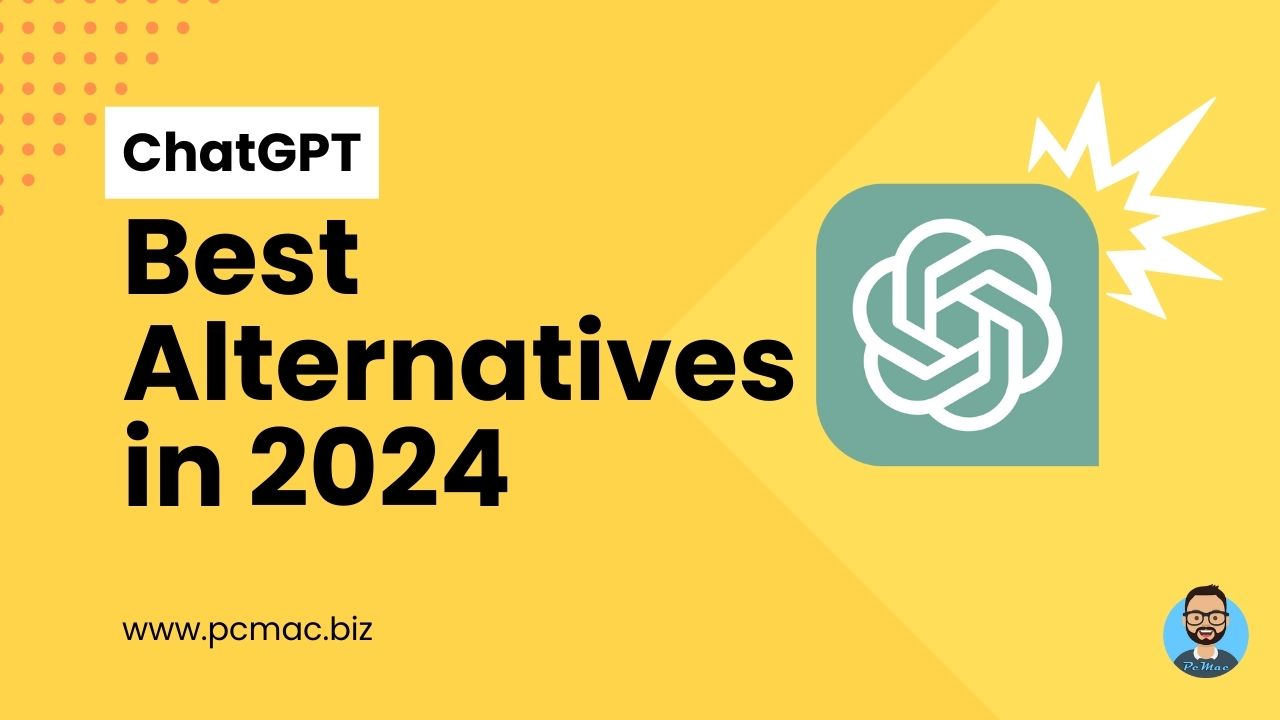In this segment, we are going to show you the “Best ChatGPT Alternatives in 2024.”
As the landscape of AI language models continues to evolve, several strong alternatives to OpenAI’s ChatGPT have emerged. These models offer unique features and capabilities that cater to a wide range of applications, from enterprise solutions to personal assistance. Here’s a detailed look at some of the best ChatGPT alternatives available in 2024.
Recommended Articles
1. GPT-4 by OpenAI
- Description: GPT-4, the latest iteration from OpenAI, builds on the success of GPT-3 with enhanced performance and improved capabilities.
- Strengths: GPT-4 excels at understanding context, generating coherent and contextually appropriate text, and handling complex queries. It offers significant advancements in conversational abilities and is ideal for applications requiring nuanced understanding and generation of human-like text.
2. Google Bard
- Description: Google Bard is Google’s AI conversational model known for its robust natural language understanding and integration with Google’s ecosystem.
- Strengths: Bard shines in information retrieval and question-answering, making it a powerful tool for users heavily invested in Google’s suite of applications and services. Its seamless integration with Google Search and other services enhances its usability and accessibility.
3. Microsoft’s Turing NLG
- Description: Developed by Microsoft, Turing NLG is one of the largest language models designed for generating human-like text.
- Strengths: This model is integrated into Microsoft products like Azure Cognitive Services, offering enterprise-grade solutions for text generation. It is especially good at generating responses that are logical and appropriate for the given context, which makes it useful for business applications.
4. Hugging Face’s Transformers
- Description: Hugging Face offers an open-source library that includes a range of pre-trained models like BERT, GPT-2, and more.
- Strengths: Hugging Face’s models are highly customizable and accessible, supporting many languages and tasks. The strong community support and extensive documentation make it a preferred choice for developers looking to tailor AI models to specific needs.
5. IBM Watson Assistant
- Description: IBM Watson Assistant is designed for enterprise use, providing AI-powered conversational capabilities.
- Strengths: Known for its robustness in business applications, Watson Assistant integrates with various data sources and enterprise systems. It offers powerful features for customer support, automation, and more, backed by IBM’s strong support services.
6. Replika
- Description: Replika is an AI chatbot designed to be a companion and conversational partner.
- Strengths: Focused on emotional connection and mental health support, Replika engages users with interactive and engaging conversations. It is ideal for those looking for a supportive and empathetic AI companion.
7. Jasper (formerly Jarvis)
- Description: Jasper is an AI writing assistant aimed at content creators, marketers, and writers.
- Strengths: Tailored for creating marketing copy, blog posts, and other forms of content, Jasper offers a user-friendly interface and powerful writing capabilities. It helps streamline the content creation process, making it easier for users to generate high-quality text.
8. Xiaoice by Microsoft
- Description: Xiaoice, popular in China, is known for its emotional intelligence and conversational capabilities.
- Strengths: Capable of holding long-term conversations with emotional awareness, Xiaoice is widely used on social platforms for engaging and interactive dialogues. Its ability to understand and respond to emotions makes it unique among conversational AIs.
9. Cleverbot
- Description: An older AI chatbot that has evolved through interactions with users over time.
- Strengths: Known for its witty and often humorous responses, Cleverbot is good for casual conversation. It provides a nostalgic yet useful experience for users searching for conversational artificial intelligence.
10. DialoGPT by Microsoft
- Description: DialoGPT is an open-source conversational model developed by Microsoft, based on GPT-2.
- Strengths: Fine-tuned for conversational tasks, DialoGPT is available for customization and integration, making it a versatile option for developers looking to build custom conversational solutions.
Conclusion
Choosing the right AI conversational model depends on your specific needs and use cases. There are several strong ChatGPT substitutes available, whether you’re searching for personal friends like Replika and Cleverbot or enterprise-level options like IBM Watson Assistant or Google Bard. Each model offers unique strengths, making them suitable for a variety of applications in today’s AI-driven world.
By exploring these alternatives, users can find the best fit for their requirements, ensuring they leverage the full potential of AI in their personal and professional lives.
For more information on these AI models and their applications, you can visit their respective websites and documentation. Stay updated with the latest advancements in AI to make informed decisions on the tools and technologies that best suit your needs.
Did you find us helpful?Support us on Patreon, follow us on Facebook, & subscribe to YouTube. |
